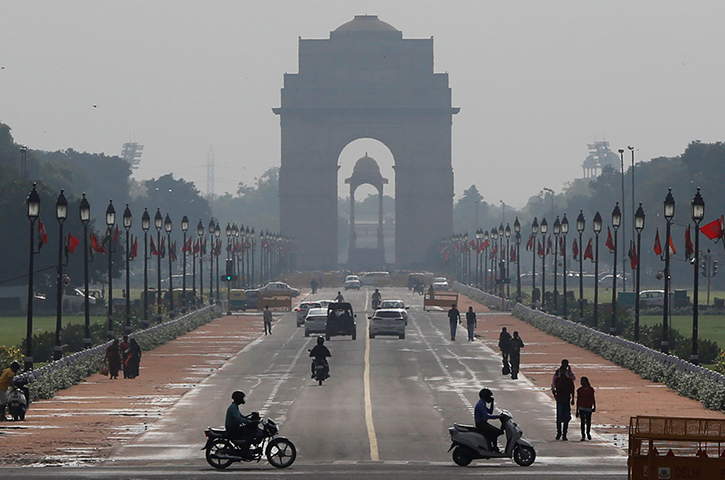Indian regional police arrested freelance journalist Vinod Verma on October 27, 2017, on claims that he used a sex tape to extort and blackmail a minister from the ruling Bharatiya Janata Party (BJP) in the Chhattisgarh region– claims the journalist denies, according to news reports.
A committee member from the BJP in Chhattisgarh lodged a complaint against Verma on October 26, alleging an anonymous threat to release objectionable videos of the minister if he did not pay hush money, according to The Indian Express, which quoted unnamed sources from Raipur police in the Chhattisgarh state.
Verma, a former editor at the BBC Hindi service and the Hindi-language news site AmarUjala.com, has recently written articles critical of the BJP for the Hindi-language NDTV Khabar site. The journalist was also part of a fact-finding team in March 2016 that the Editors Guild of India appointed to investigate threats to journalists in Chhattisgarh state, according to a report on Scroll.in.
The report from the fact-finding mission that Verma joined was highly critical of the Chhattisgarh government.
Chhattisgarh police said they searched Verma’s New Delhi home and allegedly found over 500 CD copies of a sex tape, according to a report in The Indian Express.
The Hindustan Times newspaper reported that authorities booked Verma under sections 384 and 507 of the Indian Penal Code for extortion and intimidation.
If convicted, Verma faces a possible prison term of three years, according to IndianKanoon.org, an online legal resource.
The journalist said he was “being framed,” according to the Indian Express news site. Verma denied having any CDs of the sex tape, and said he had it stored on a pen drive, the BBC reported.
“I have a sex CD of a Chhattisgarh Minister, that is why [the] Chhattisgarh Govt is not happy with me,” Verma told a crowd of journalists as police took him away, according to a tweet from the Asian News International news agency.
During a press conference on October 27, the inspector general of the Raipur police in the Chhattisgarh region, Pradeep Gupta, said the contents of the CDs violate section 67 of the IT Act, which makes the publication and transmission of sexually explicit material illegal, according to a report on Scroll.in. It is unclear if authorities will press charges relating to this law against Verma.
Raipur city police superintendent Sanjay Shukla and the general director of the Chhattisgarh police did not answer CPJ’s repeated calls to request comment.
“What the police has done is right,” Shivratan Sharma, spokesperson for the BJP’s Chhattisgarh state unit told CPJ. “Verma had made 500 sex CDs and was using them to tarnish [Rajesh] Munat’s character and that’s not right,” he added.
Bhupesh Baghel, president of the opposition Congress party’s Chattisgarh state unit, condemned Varma’s arrest and said that he too had a copy of the compromising sex tape that formed the basis of the journalist’s arrest, according to the Indian Express newspaper.
According to the Indian Express report, Verma was a political consultant to Baghel. However, Urmilesh, a veteran journalist in Delhi who has known Verma for two decades, told CPJ that Verma had told him that he did not work for the Congress party directly.
“What he told me was that Quantum Verto, a firm hired by the Congress to do its social media marketing, hired him as a consultant,” Urmilesh added. “He was never an employee of the company.”
The media in Chhattisgarh is working under tremendous pressure,” wrote Verma, Prakash Dubey and Seema Chishti in their findings, published on Scroll.in. “In Jagdalpur and the remote tribal areas the journalists find it even more difficult to gather and disseminate news. There is pressure from the state administration, especially the police, on journalists to write what they want or not to publish reports that the administration sees as hostile.”
CPJ has previously documented how journalists reporting from Chhattisgarh have faced arrests, harassment and intimidation.
In February 2016, CPJ documented threats made against Alok Prakash Putul, a journalist for the BBC’s Hindi Service, and freelance journalist Malini Subramaniam that forced the pair to flee.
Later, in March 2016, authorities arrested and imprisoned Prabhat Singh, a reporter for the Hindi daily Patrika on charges of “circulating obscene material” under section 67 of the Information Technology Act, CPJ documented.
